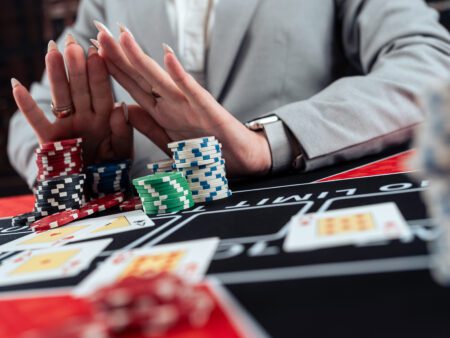Explore the psychology of addiction in gambling, including how it develops, how to recognize the signs, and what treatment options are available.
The Psychology of Addiction in Gambling
Gambling addiction is a serious problem that affects millions of people around the world. Unlike other addictions, gambling addiction is often hidden and difficult to recognize. This is because gambling is not a substance, but a behavior, which can be easily concealed from friends and family. In this article, we explore the psychology of addiction in gambling, including how it develops, how to recognize the signs, and what treatment options are available.
How Addiction Develops
Addiction is a complex and multifaceted phenomenon, influenced by both biological and environmental factors. In gambling addiction, the brain’s reward system is hijacked, causing the individual to experience intense pleasure and excitement when gambling. Over time, the brain becomes desensitized to these feelings, and the individual needs to gamble more frequently and with higher stakes to achieve the same level of pleasure.
Environmental factors also play a significant role in the development of gambling addiction. Stressful life events, financial difficulties, and social isolation can all contribute to the onset of gambling addiction. Additionally, people who have a family history of addiction are more likely to develop a gambling addiction themselves.
Recognizing the Signs of Gambling Addiction
Recognizing the signs of gambling addiction can be challenging, as they are often subtle and easily overlooked. However, there are several common signs that you can look out for. These include:
- Preoccupation with gambling
- Increasing frequency and duration of gambling sessions
- Chasing losses
- Lying about gambling activities
- Using gambling as a way to cope with stress or negative emotions
- Neglecting other areas of life, such as work, relationships, or hobbies, in favor of gambling
If you or someone you know is exhibiting these signs, it may be time to seek professional help.
Treatment Options
There are several treatment options available for gambling addiction, including therapy, support groups, and medication. Cognitive-behavioral therapy (CBT) is a common treatment approach for gambling addiction, as it helps individuals to identify and change the negative thought patterns and behaviors that contribute to their addiction. Support groups, such as Gamblers Anonymous, can also be helpful for individuals seeking to overcome their addiction. Medications, such as antidepressants, can also be prescribed to help manage the symptoms of gambling addiction.
In conclusion, gambling addiction is a complex and serious problem that requires professional help to overcome. If you or someone you know is struggling with gambling addiction, it is important to seek help as soon as possible. With the right treatment, it is possible to overcome gambling addiction and regain control of your life.










